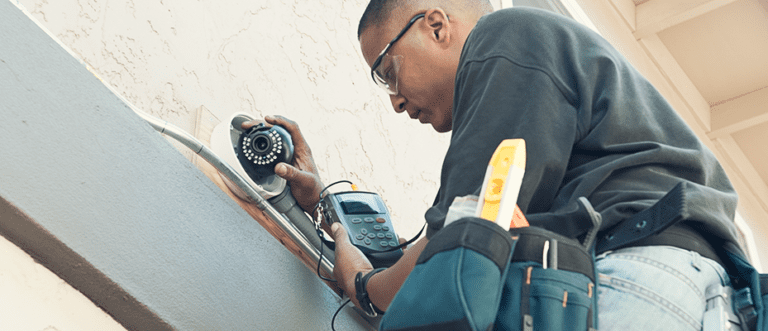Security Alarms Installation: Ensuring Your Safety and Peace of Mind
One effective way to enhance security is through security alarms installation. This process involves setting up alarm systems that detect unauthorized access, alert homeowners or business owners, and can even notify local authorities. Proper security alarms installation is crucial to ensure that these systems function effectively, providing the peace of mind you need.
Importance of Security Alarms Installation
Security alarms installation is essential for various reasons:
- Deterrence of Crime: A visible alarm system can deter potential burglars and intruders. Knowing that a property is equipped with an alarm system reduces the likelihood of break-ins.
- Immediate Alerts: Security alarms provide real-time alerts. When an intrusion is detected, the system can sound an alarm, flash lights, and send notifications to your mobile device or monitoring service.
- Emergency Response: Many modern alarm systems are connected to emergency services. In the event of a break-in, police or security personnel can be dispatched immediately.
- Insurance Benefits: Installing a security system may lead to lower insurance premiums. Many insurance companies offer discounts for properties with effective security measures.
- Peace of Mind: Knowing that your property is protected allows you to feel more secure in your daily activities. This peace of mind is invaluable for homeowners and business operators alike.
Types of Security Alarm Systems
When considering security alarms installation, there are several types of systems to choose from:
- Burglar Alarms: These systems detect unauthorized entry. They may include motion sensors, door/window contacts, and glass break sensors.
- Fire Alarms: Integrated fire alarms can detect smoke and heat, alerting occupants and emergency services. Combining these with burglary systems enhances overall safety.
- Environmental Sensors: These alarms can detect leaks, floods, and even changes in temperature, alerting you to potential property damage.
- Smart Security Systems: These systems connect to your smartphone, allowing you to monitor your property remotely. Features may include cameras, motion detection, and alerts.
- Commercial Security Systems: Tailored for businesses, these systems often include access control, surveillance cameras, and more comprehensive monitoring solutions.
The Security Alarms Installation Process
The security alarms installation process typically involves several key steps:
- Assessment: A professional security provider will assess your property to determine the best alarm system for your needs. They will consider factors like the layout, existing security features, and specific vulnerabilities.
- System Design: Based on the assessment, a customized security plan is created. This plan outlines the type of alarm system, the placement of sensors and cameras, and any additional features.
- Installation: The installation team will professionally install the equipment, ensuring that all components are correctly set up and functioning. This includes mounting cameras, sensors, and alarms at optimal locations.
- Configuration: After installation, the system is configured to your specifications. This includes setting up monitoring options, alarm sensitivity, and notification preferences.
- Testing: A thorough test is conducted to ensure that all components are working properly. This step is crucial to verify that the system responds correctly to potential threats.
- Training: The service provider will educate you on how to use the alarm system effectively, including how to arm and disarm it, respond to alerts, and maintain the system.
Choosing the Right Security Provider for Installation
When considering security alarms installation, it’s vital to select a reputable provider. Here are some tips:
- Experience and Expertise: Look for a company with a proven track record in security system installations. Experienced professionals can offer valuable insights and recommendations.
- Customized Solutions: Choose a provider that offers tailored solutions rather than a one-size-fits-all approach. Every property has unique security needs.
- Customer Support: Opt for a provider that offers ongoing support and maintenance services. A reliable customer service team can assist with any issues that arise after installation.
- Reviews and Recommendations: Check customer reviews and ask for recommendations. Positive feedback from previous clients is a good indicator of quality service.
Maintaining Your Security Alarm System
After security alarms installation, regular maintenance is key to ensuring optimal performance. Here are some maintenance tips:
- Routine Checks: Regularly test your alarm system to ensure all components are functioning correctly. Most systems include a test mode that can be used for this purpose.
- Battery Replacement: Check and replace batteries as needed, especially for wireless systems. Low batteries can cause alarms to malfunction.
- Software Updates: If your system includes smart features, ensure that software is updated regularly to benefit from the latest security features and fixes.
- Professional Inspections: Schedule professional inspections periodically. Technicians can identify potential issues and recommend upgrades or repairs.
Security alarms installation is an essential investment for protecting your property and ensuring peace of mind. With various options available, it is crucial to choose the right system and a reputable installation provider. Regular maintenance and monitoring will help keep your security system effective, providing the protection you need against intruders and emergencies. If you’re considering enhancing your security measures, contact a professional service today to explore your options for security alarms installation

